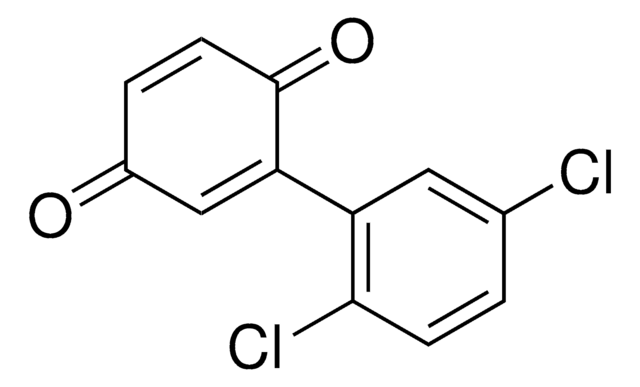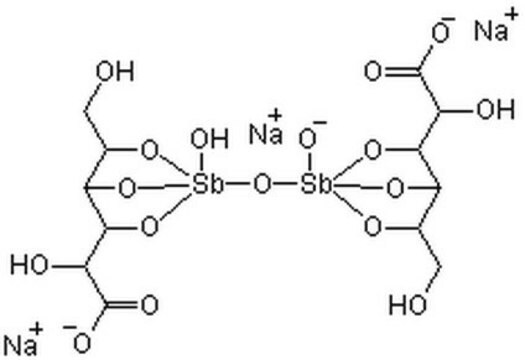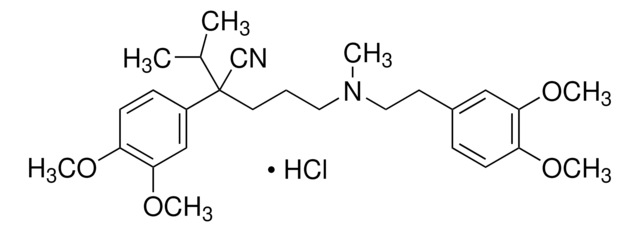565851
NSC-87877
≥97% (HPLC), solid, SHP1/2 PTPase inhibitor, Calbiochem®
Synonyme(s) :
SHP1/2 PTPase Inhibitor, NSC-87877, 8-Hydroxy-7-(6-sulfonaphthalen-2-yl)diazenyl-quinoline-5-sulfonic acid, Disodium Salt, HePTP Inhibitor II, PTP Inhibitor XXV, PTP1B Inhibitor IV, SHP1 Inhibitor I, SHP2 Inhibitor I
About This Item
Produits recommandés
Nom du produit
SHP1/2 PTPase Inhibitor, NSC-87877, The SHP1/2 PTPase Inhibitor, NSC-87877, also referenced under CAS 56932-43-5, controls the biological activity of SHP1/2 PTPase. This small molecule/inhibitor is primarily used for Phosphorylation & Dephosphorylation applications.
Niveau de qualité
Essai
≥97% (HPLC)
Forme
solid
Fabricant/nom de marque
Calbiochem®
Conditions de stockage
OK to freeze
desiccated (hygroscopic)
protect from light
Couleur
red-brown
Solubilité
water: 10 mg/mL
Conditions d'expédition
ambient
Température de stockage
2-8°C
InChI
1S/C19H13N3O7S2.2Na/c23-19-16(10-17(31(27,28)29)15-2-1-7-20-18(15)19)22-21-13-5-3-12-9-14(30(24,25)26)6-4-11(12)8-13;;/h1-10,21H,(H,24,25,26)(H,27,28,29);;/q;2*+1/p-2/b22-16+;;
Clé InChI
YOGRUDWAJPVHEL-LLDDCTHSSA-L
Description générale
Actions biochimiques/physiologiques
SHP1/2 PTPase
Conditionnement
Avertissement
Reconstitution
Autres remarques
Informations légales
Code de la classe de stockage
11 - Combustible Solids
Classe de danger pour l'eau (WGK)
WGK 2
Point d'éclair (°F)
Not applicable
Point d'éclair (°C)
Not applicable
Certificats d'analyse (COA)
Recherchez un Certificats d'analyse (COA) en saisissant le numéro de lot du produit. Les numéros de lot figurent sur l'étiquette du produit après les mots "Lot" ou "Batch".
Déjà en possession de ce produit ?
Retrouvez la documentation relative aux produits que vous avez récemment achetés dans la Bibliothèque de documents.
Les clients ont également consulté
Notre équipe de scientifiques dispose d'une expérience dans tous les secteurs de la recherche, notamment en sciences de la vie, science des matériaux, synthèse chimique, chromatographie, analyse et dans de nombreux autres domaines..
Contacter notre Service technique









